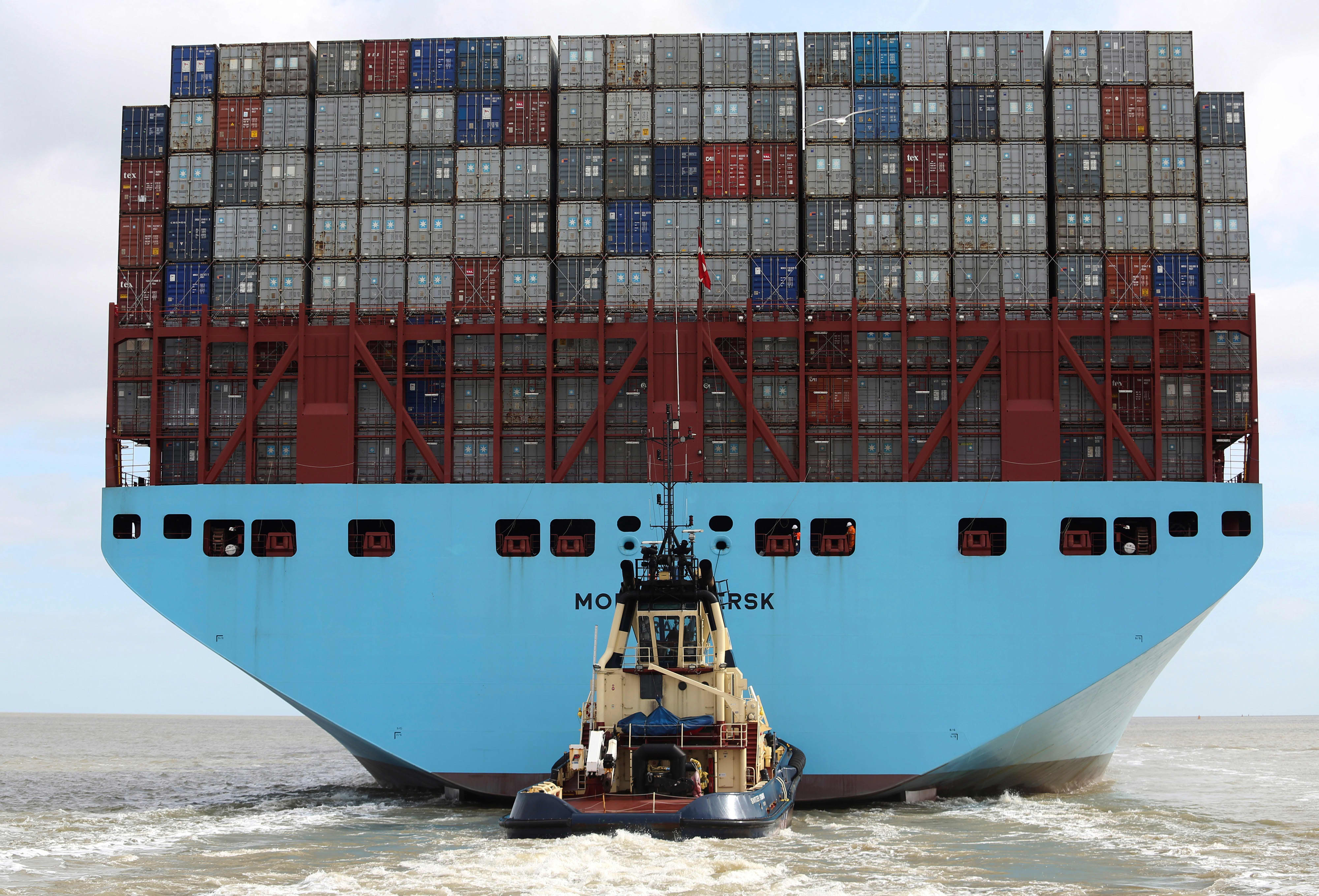
Chris Ratcliffe | Bloomberg | Getty Images
Danish firm Maersk said Tuesday it is ordering eight large ocean-going vessels capable of operating on what it called “carbon-neutral methanol.”
The world’s largest container shipping company said the ships would be built by South Korea’s Hyundai Heavy Industries and could carry around 16,000 containers. According to various reports, each ship will cost $ 175 million, which will cost a total of $ 1.4 billion.
In a video message, Morten Bo Christiansen, head of decarbonization at Maersk, said the ships would “impact the waters by early 2024.” He added: “Once they are sailing with green methanol, they will save a million tonnes of CO2 every year.”
Maersk said the ships would have a dual-fuel engine installed, a feature that increases costs. “The additional capital expenditure … for the double fuel capacity, which allows to operate with methanol and conventional low-sulfur fuel, will range from 10 to 15% of the total price,” he said. Its agreement with Hyundai Heavy Industries has an option for four additional ships in 2025.
While the Danish ship giant said it would run the ships “with carbon-neutral e-methanol or sustainable bio-methanol as soon as possible,” it also acknowledged that there were problems to overcome.
“Supplying an adequate amount of carbon-neutral methanol from the first day of service will be a challenge, as it requires a significant increase in production from the proper production of carbon-neutral methanol,” Maersk said.
In simple terms, “carbon neutral” means that CO2 emissions are offset by an equal amount of CO2 removal. If something is negative for carbon, it means that more CO2 is removed from the atmosphere than emitted.
Tuesday’s announcement comes days after Maersk said it had secured a supply of “green” e-methanol for what it described as “the world’s first carbon-neutral container ship.”
He said European Energy of Denmark and its subsidiary, REintegrate, would set up a facility to produce carbon-neutral e-methanol for use on a ship designed to operate there. The plant would then produce approximately 10,000 metric tons of e-methanol used by the Maersk ship each year.
E-methanol will be manufactured from renewable energy and biogenic carbon dioxide, and fuel production for Maersk will begin in 2023. The U.S. Environmental Protection Agency describes the sources of biogenic emissions as “emissions that come from natural sources ”.
The environmental footprint of shipping is significant. According to the International Energy Agency, in 2019 international maritime transport (a crucial gear in the world economy) was responsible for approximately 2% of “global energy-related CO2 emissions”.
With the world’s major economies trying to reduce emissions to achieve net zero targets, the maritime sector will have to find new ways to reduce the environmental footprint of its operations.
In April, the Brussels-based Transport & Environment campaign group published a comprehensive report on the decarbonisation of maritime transport. Among other things, he stressed the importance of sustainable fuels in the future.
“Achieving complete decarbonisation of the maritime sector requires a new source of sustainable and renewable fuel,” his research said.
“Fuels produced with additional renewable electricity (e-fuels or electrofuels) are the only scalable solution that adapts to the requirements of dense, deployable and clean energy fuels,” he added.